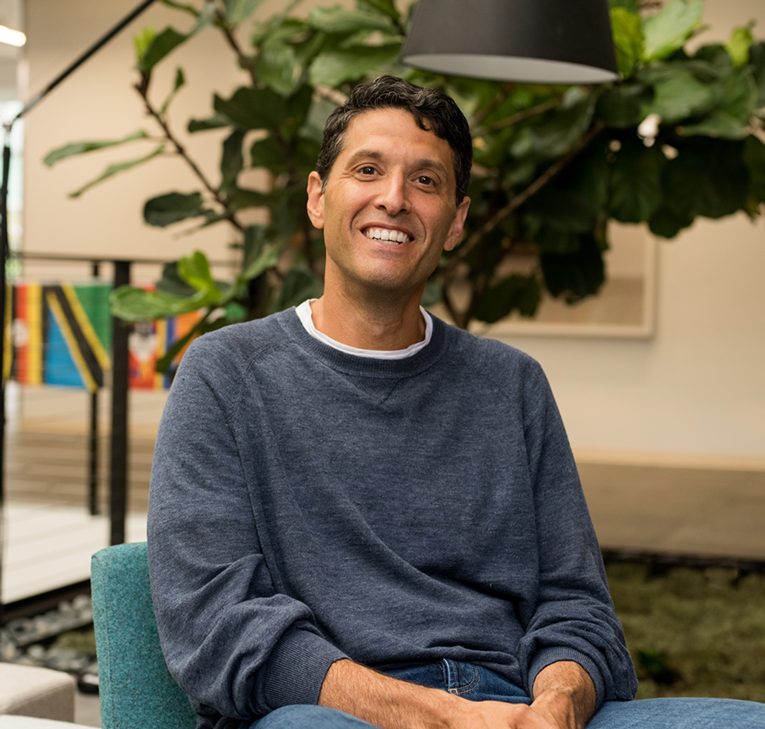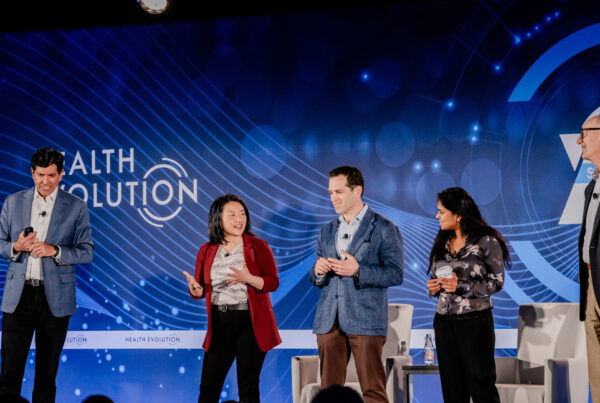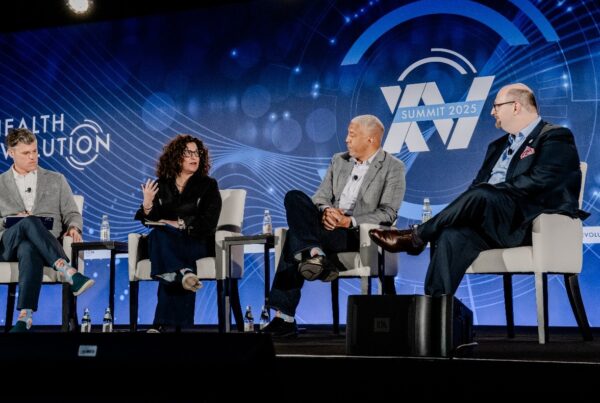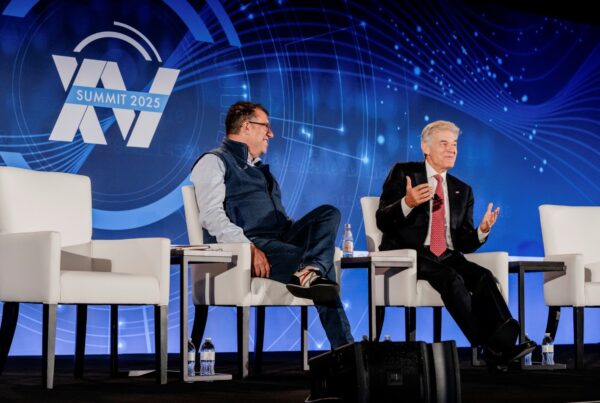After more than two decades at Microsoft and running teams that were responsible for the Surface tablet and the Xbox gaming system, Terry Myerson needed a change.
“I wanted to do something new. I sort of fell in love with the intersection of data sciences and life sciences, really on the biopharma side. Seeing all the incredible insights that could be derived to design protein and understand what’s going on by using big data and biology,” Myerson says.
At the same time, Providence health system was writing whitepapers recognizing the potential insights that could be derived from the organization’s data set, which could be used to improve patient treatments and outcomes and unlock therapies for rare diseases. But leaders at Providence also came to realize they didn’t have enough data nor the team itself to unlock those insights. Thus, an initiative led by CEO Rod Hochman and President of Clinical Care Amy Compton Philips, MD, began to convince other systems to work with Providence to create a collaboration.
The two sides came together in March of last year as the pandemic began to take hold in the U.S., starting in Providence’s Seattle area. Myerson was recruited by several of his former colleagues at Microsoft, who work at Providence, to help discern insights on COVID-19. After several months of hard work, Myerson came to realize that there were no good tools to ask and answer the hard questions about the virus.
Read more: COVID-19 Innovation Guide: Returning to the Next Normal
“It was clear the world needed this Truveta project to exist,” he says. “We need a data set like this so we can take care of patients better.” Truveta (truth plus knowledge) is the new company established by Providence and 13 other health systems across the country. (The complete list of organizations can be found here). Myerson stepped into the CEO role at the data-driven collaborative company, which is governed by and answers to the health system stakeholders. The plan is to build out a platform, through structuring, normalizing, and de-identifying data from these health systems, that can enable better insights into COVID-19 and other problems plaguing health care.
Myerson spoke with Health Evolution in an exclusive interview on why this collaborative approach between health systems will succeed where others have flopped, the importance of addressing health equity challenges through this effort, the problem with current health care AI data sets and more. Here’s an excerpt from this conversation.
Health Evolution: How were you able to pull together 14 large health systems, across the country, into this project?
Myerson: When we look back at 10 years at how COVID changed the world, I think something is going to change in commercial real estate. How much will we work from home? How much from the office? It’s a great question. But I do think Truveta is one of the things we could look back upon and say it got created because of COVID. Think about pre-COVID what it would have taken to create Truveta. You would have flown around nonstop. Chicago. Milwaukee. Manhattan. Norfolk, Virginia. Jacksonville. Orlando. Seattle. Dallas. Now we get to build these partnerships with a click of a mouse. We get to create this community among health systems with an efficiency that never would have been possible pre-COVID. COVID gives us the moral imperative to create this asset for the world. But COVID gives us the tactical efficiency to have the necessary dialogues to build trust over a video call. One year ago, the idea you would do significant business transactions over video was unheard of. COVID-19 made it possible to do significant business deals with the click of a mouse. It forebodes a world where whole new collaborations are unlocked.
Health Evolution: There have been a lot of collaborative approaches between health systems in the past—some even around data sharing—what is going to make this one different?
Myerson: What’s special about Truveta is that we have a health system led company. It will be governed by health systems and they are stakeholders in its success. We’re not owned by capitalist investors. We are owned by health systems who want to help their patients. The mission of health systems, we are in service of that. And then you marry that with hiring the best of technology. The people who have joined us come from Microsoft, Google, Amazon, Facebook. These are folks who are inspired by the vision to save lives with data. This is what they want to apply their skills to. What I can bring to this is [experience running] an amazing technology organization that has built some of the largest scale big data platforms in the world today. What health systems bring are their ethics, mission, patience, and willingness to create magic together.
It’s hard to compare with things from the past. Have there been things at similar scale? I’m not sure there have been efforts at this scale. These are some of the largest health systems in the U.S. We have unbelievable depth. Unbelievable diversity. We have South Central LA. Bronx, NY. Alaska. Hawaii. This is the full diversity of the United States. This is scale we’ve never seen before. This is a company led by health systems and staffed by the best tech team I can build. And I’ve built some good ones in the past.
Health Evolution: How important is it for you to discover insights that will improve health equity – it’s an issue that’s gotten a lot of attention thanks to the pandemic?
Myerson: The data is unbelievable. One-third of nurses who have died from COVID-19 are Filipino but only 4 percent of nurses are Filipino. When you hear a stat like that, you wonder, ‘Is there variation in care or access to care that these nurses are receiving?’ Or should there be? Is there care that we’re seeing that’s much more effective for that ethnicity? What Truveta can do is shine a light on these answers. We can’t solve these inequities, but we can shine a light on what’s happening. We can understand where there is a variation in care and where there should be a variation in care to have better outcomes. That’s exciting in terms of establishing more equity in our community. This is so critical. As we look forward to a world with more digital diagnostics and digital therapies.











